Introduction By Sanjay Rath and P.V.R. Narasimha Rao
Tithi Pravesha is the Annual Horoscopy of Jyotish. The Tajika System of annual horoscopy employs a chart cast for every year of life based on the solar return (i.e. sun’s return to its natal sidereal position). Many scholars of history and Vedic Studies have held a view that this system is primarily not ‘Vedic Astrology’ and might be a borrowed feature from Yavanas or Tajikas, who interacted with Indian scholars. Notwithstanding the peculiar yoga’s like Iṭṭasāla, Easarpha etc. nor divisional charts like Aṣṭāṁśa (D-8) etc., which are not a part of Parāśara’s available teachings, outstanding scholars like Nīlakaṇṭha and Dr Raman set a precedent by accepting the Tājaka system as a branch of Vedic astrology.
However, the solar calendar has been widely followed in India only since Varāhamihira started Vikrama Saka. India had been following the Vedic luni-solar calendar for millennia. When Maharshis like Valmiki and Vyasa mentioned the timing of events in epics like Ramayana and Mahabharata, they identified events only by the tithis. It maybe interesting to note that traditional Hindu’s celebrate their birth days (called Jayanti or Janma tithi) on the Vedic date (Tithi) of the luni-solar calendar instead of the date of Sun’s return. All festivals (except for Sankrantis) commemorating the birthdays of deities, Gurus etc are also based on the luni-solar calendar of Tithi. For example, Hindus celebrate Lord Rama’s birthday on the Sukla Navami Tithi of Chaitra month every year and Lord Krishna’s birthday on the Krishna Ashtami Tithi of Sravana month. If birthday as per the luni-solar calendar is more important than birthday as per the solar calendar, why do we cast a chart for Varsha pravesha (commencement of a new year) based on birthday as per the solar calendar? Does it not make sense to cast a chart for the commencement of a new year based on birthday as per the luni-solar calendar of tithis?
In fact, not only does it make sense, but the technique of annual horoscopy using the luni-solar calendar is one of the most reliable techniques – and hence a guarded secret – taught by tradition for fine predictions.
Tithi
Tithi is the Vedic date of the luni-solar calendar and is a measure of the angular displacement of Moon from Sun. It is known that the period between two consecutive full moon’s (i.e. exact 180° displacement of the Moon from the Sun) is about 29.5 civil days. The total movement of 360° of the angle between the Luminaries in transit in a month was divided by 30 to obtain a measure of 12° called ‘Tithi’ (luni-solar day). Tithi is the period in which the angular displacement of Moon from Sun increases by exactly 12°. There are fifteen tithi (15 x 12° =180°) in the waxing phase (śukla pakṣa) and fifteen tithi is the waning phase (kṛṣṇa pakṣa). The displacement angle = Longitude of Moon – longitude of sun. When this angle is divided by 12°, we get an index to the tithi, starting from śukla pratipada.
The Luminaries
A child is a product of both parents and the importance of the Moon, even over the Sun in the determination of fortune is a well established aspect of Vedic Astrology. The tripod of life is the ascendant (body), Sun (soul) and Moon (mind). In another sense, these are self (Lagna), Father (Sun) and Mother (Moon). It is but natural that a better definition of the moment of birth would be the angular displacement of the Moon from Sun, instead of just the natal Sun position. This is the Janma Tithi.
We should be equally careful to ensure that such a definition does not dilute the importance of the sun as it is the representative of the real self/the soul. For this purpose Maharshis have defined the twelve sunsigns (or simply signs of the zodiac) called Dwadasa Aditya. These define the boundaries within which the Sun’s placement causes it to have the specific form of a ‘deva’ and a ‘Jyotirlinga’. Thus the longitude of Sun in a sign is not as relevant as its placement in the very sign itself and this fact is taken as an ‘anchor’ for drawing the annual charts. As the soul is the anchor of our existence, Sun’s transit in its natal sign signifies the figurative re-establishment of this anchor, i.e. a new beginning (In fact, it is because of this re-establishment of anchor that marriage is prohibited in the solar month of birth).
Such an anchorage would be meaningless without a consideration of the ‘Mind’ – the emotions, sustenance and fruits of existence. Thus including the Moon’s ‘angular return’ along with the annual solar natal sign anchorage defines the astrological Janma Tithi return.
Though birthday as per the luni-solar calendar is traditionally celebrated when janma tithi returns in the same lunar month (which is identified based on the signs occupied by Sun and Moon at the beginning of the month), this definition was probably adopted for ease in civil usage. The most astrologically acceptable definition is based on janma tithi and sunsign (sunsign at janma tithi return and not sunsign at the beginning of the month). This is the most perfect method for defining the moment that is the closest in emulating the moment of birth. Hence, this is the ‘truest astrological birthday’ or rather ‘birth moment’.
Tithi Pravesha Chakra
As outlined above, the definition of the annual birth moment is the moment when Sun transits its natal sign and the Moon is at the exact displacement angle from Sun (degrees, minutes & seconds) as at birth.
Pravesha means entry or return and Tithi Pravesha Chakra is the chart drawn for the birth moment of Tithi return every year. If the angle from Sun to Moon matches that in the natal chart, it means that the Tithi running is the same as birth Tithi and also the fraction of Tithi remaining is the same as at birth. If someone was born with Sun in Aries on Chaitra Sukla Navami with 25% of the Tithi remaining, the native’s astrological luni-solar new year will commence every year when Sun is in Aries and Sukla Navami is running with 25% of the Tithi remaining. A chart cast for this moment for the longitude and latitude of the birthplace – irrespective of where the native is currently living – will throw light on the events during the coming year. This chart is called “Tithi Pravesha” (TP) chart.



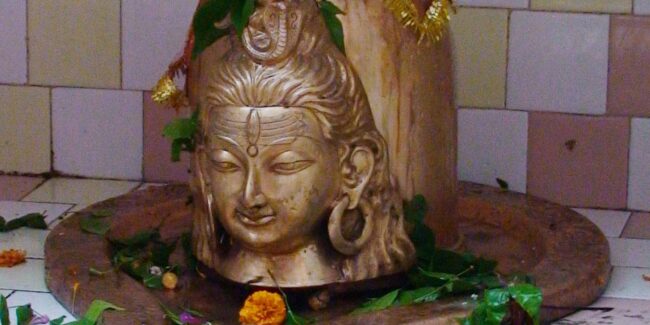
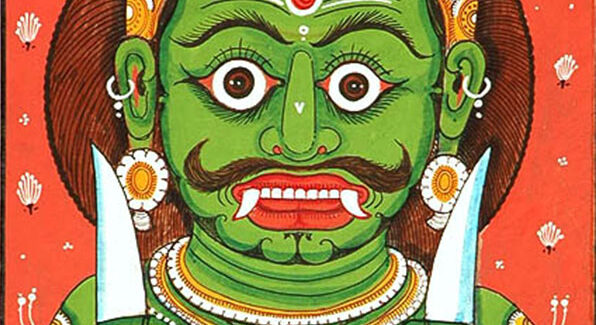
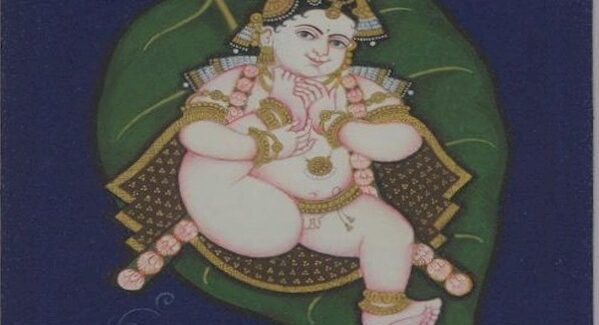
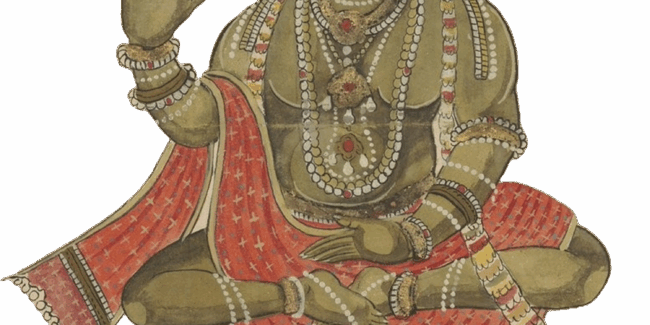
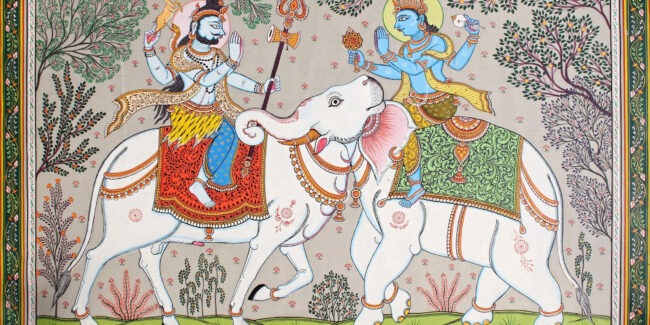
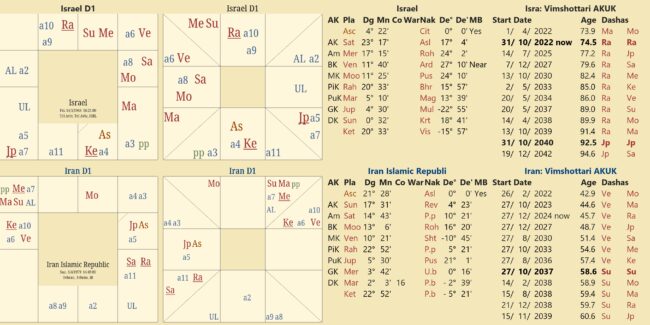


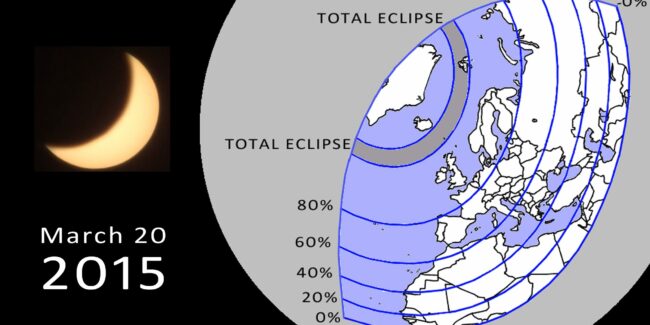
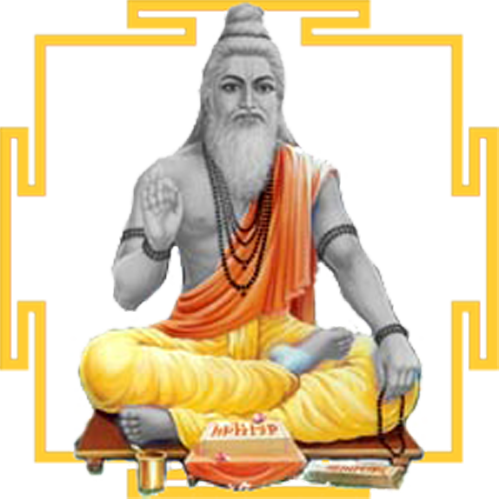 DBC offers online courses in jyotish (Vedic Astrology) taught directly by Sanjay Rath as per the tradition, through narrated power points and other audio tools. The courses are at different levels, from the beginners through the intermediate to the advanced and are known as SoHamsa | DBC courses, with individual classrooms and assistant teachers
DBC offers online courses in jyotish (Vedic Astrology) taught directly by Sanjay Rath as per the tradition, through narrated power points and other audio tools. The courses are at different levels, from the beginners through the intermediate to the advanced and are known as SoHamsa | DBC courses, with individual classrooms and assistant teachers
 Sagittarius Publications is the publisher and distributor the popular quaterly magazine the Jyotish Digest, as well as many thorough books on the subject of Vedic Astrology or Jyotish.
Sagittarius Publications is the publisher and distributor the popular quaterly magazine the Jyotish Digest, as well as many thorough books on the subject of Vedic Astrology or Jyotish. We have an excellent pandit Divākar ‘Deva’ Mishra, who is from the priests of Vindhyāvāsini Siddha Pīṭha to guide you through the hundreds of temples of Kāśi [Varanasi] and neighbouring regions. He can organise your pūjā, keep you safe and take care. He is supported by an English-speaking well-travelled spouse ‘Supriya Mishra’. Please contact them directly for any services, remedial pūjā and tours. They handled the 60+ member Kāśi Jyotiṣa Group 2022.
We have an excellent pandit Divākar ‘Deva’ Mishra, who is from the priests of Vindhyāvāsini Siddha Pīṭha to guide you through the hundreds of temples of Kāśi [Varanasi] and neighbouring regions. He can organise your pūjā, keep you safe and take care. He is supported by an English-speaking well-travelled spouse ‘Supriya Mishra’. Please contact them directly for any services, remedial pūjā and tours. They handled the 60+ member Kāśi Jyotiṣa Group 2022.
Sir if husband and wife tithi Lord is same I. E; mars in water sign…..buthusband tithi Lord is Mars in 6th house debilitated and wife tithi Lord Mars is also debilitated then?
That is so nice to have Mars in Karka rashi. Both are equally strong people. Ganesha keeps them together.
Namaskar,
I was watching the your videos on KRS channel & found this site. Thank you for your teachings.
I had a question regarding marriage. In my chart, the Thiti lord & Atmakaraka is Saturn, and he is sitting alone in Lagna (Scorpio) & third house of Navamsa (Pisces). How is this going to affect my chance to get married?
Thank you
My Thiti lord is moon , darakaraka is Saturn positioned in 7th house in D9 and 10th House in D1
My lagna lord is jupiter and rasi lord jupiter 9th House jup/rahu/Mar conjuction and 7th d1 House moon my 1st marriage is dissolved what about second marriage
Which be with some one having thiti lord saturn then ?
Rasi Lord is mercury correction
To reply to that would be very loose statement and misleading. get the chart seen.
Dear Sanjay Rath Sir,
My Thiti Lord is Jupiter conjoined with Mars in 3rd house of leo lagna and my wife’s Thiti Lord is moon conjoined with rahu for Leo gna in 9th house.
Please suggest remedy for happy married life.
I will be very grateful to you.
Tithi Pravesha is the annual horoscopy. Tithi lord deals with all relationships and not just marriage
Both have afflicted tithi lords. You should do pradosha and wife should do amavasya vratas
In KRS astrology YouTube channel, we learnt from you that when the Tithi lord rules the 7th house it is very beneficial for the first marriage.
Is this applicable in the D9 chart also?
Yes, provided that tithi lord is not badly placed. If it is then the marriage / relationship will be there and so will the suffering. Tithi is like water. If it is dirty, then it brings disease. If it is boiling then it causes scalding
Respected Guru Sanjay Rath ji, I watched your presentation on Tithi and Vara lord concept in SJC channel where you mentioned that if both Tithi lord and Vara lord are conjoined in the same house then one of them will suffer. I was born in Navami tithi (lord Sun) and on Wednesday (lord Mercury). In my horoscope both Sun and Mercury are conjoined in 10th house Pisces with exalted venus and also Rahu aspects 10th house. Can I have good relationship and also good health by doing any remedies as I fear when I am in relationship I lose my health or just accept it and move on.
Hare Rama Krishna
With regards to Tithi & Relationships, I have a question. If the Tithi lord is Mars placed in Aries along with Rahu for an Aquarius ascendant and there is Moon in the 8th House of Virgo. Would the Mars aspect on Cancer be dangerous for the spouse ?
Looking forward to hearing from you.
Very bad for siblings
Very good knowledge & explanation
Sri Sanjay, inspired by your lecture on Youtube, this article and the need to provide information about Jyotish to the German-speaking audience, and in this case for Tithi Pravesha also, I have written an article based on yours on my website, where you even can calculate the Tithi Pravesha. Although my website is entirely in German, I think the necessary input and output is easy to understand even for the English-speaking audience. https://www.astrosign.ch/astrologie/tithi-pravesha/tithi-pravesh.html
Thank you for sharing this, Werner
Om guruve namah.
for TP 2019 day lord is sun and hora lord is Jupiter .
jupiter is in langa with 9th lord moon(is it good fame or bad fame).
and day lord sun with rahu , mars , mercury, in 8th house. my father is facing serious health issue last 2 years.is this combination indicating any trouble to him.
saturn ketu in 2nd house. venus in 7th house.
Thank you so much Sanjay ji for your excellent teachings yet again..Tithi lord exalted in 6th house and is lord of ascendant and 8th house. is that some sort of transformation in career for that year?
Look at Hora Lord instead
Do you use true or mean nodes of Rahu and ketu? Which gives accurate result?
The nodes have to be retrograde all the time. This position is possible only for what is nowadays mathematically called mean nodes. Just as the Sun and Moon can never retrograde, so also the Rahu and Ketu can never be direct. This is the paradigm of light in Jyotisha. Anyone who says otherwise is not doing jyotisha – they are doing astrology. Nothing wrong with that – just that it isn’t jyotisha
Dr Rath, I have my tithi lord (Mars krishna tritiya) exalted in Aries in my 10th house, for Cancer ascendant. And my Vara lord is also Mars, since I was born on a Tuesday. I was watching one of your lessons with Kapiel and you explained many horoscopes that had Sun Vara and Sun Tithi ended badly. Is it the same for Mars Vara and Mars Tithi? I am worried because my Saturn is mutually aspects by my Mars, but Saturn is placed in Scopio in the 5th house, so is already weak.
My 9th house has Sun, Jupiter and Rahu in Pisces, with Sun lowest degree, so I am hoping there is some positivity there? Or from Venus in Capricorn in my 7th? I have gone through A very hard period being left with a child by my partner (not married). And I could see from your explanation that his Tithi lord, Sun, was in my 9th Bhava. Do I have any hope of a better partnership to come? A more spiritual one? Or should I give up on partnerships and follow my dream of becoming an art of living teacher?
Mary start fasting on Saturdays and do this Mars-Agni mantra (ever heard of it)
ॐ ह्रीं हंसः खं खः
om hrīṁ haṁsaḥ khaṁ khaḥ
Respected Guru, I watched your presentation on Tithi and marriage on KRS channel. I have a doubt. If you could answer it , I would be really grateful.
I was born on Krishna paksha Ashtami tithi. I’m Virgo ascendant and Virgo moon. My Tithi lord Rahu is debilitated in Scorpio in the third house. My 7th and 4th lord Júpiter and 2nd & 9th lord Venus are in Parivartan(Parivartan yoga happens in between 4th and 2nd house.).4th house has sun,mars,mercury and Venus closely conjunct. 6th house has Saturn in Aquarius. Ketu in Taurus in the 9th house. Will I have a troubled marriage? ( I’m a loser at love and relationship) please reply to me. O’ Great Guru.
Rahu is very weak and shows sudden breaks in relationships due to unending ‘doubts’.
Basically, tithi lord association with moon and rahu and in 6th house..though its in own house..will it be considered good or bad?
Good as it is well placed and shows growth in profession. Look carefully for any yuddha. Mo + Ra is generally bad – shakta puja recommended
In Kapiel Show, we learnt about tithi lord and spousal relation, if tithi lord is placed in 6th from lagna…and hence 12 from 7th, what would that mean about marriage quality. Also tithi lord combines rahu and moon in 6th. Tithi lord is mars in aries with scorpio lagna.
Excellent by position but it hurts the attitude to marriage
Tithi loard moon placed in 6th house and 9th loard Is Mars which is sitting in 2nd house for Gemini Lagan what does it mean
Weak tithi lord shows troubles in forst relationship/marriage. Do kumbha vivaha
om guruve namah. i hv been following ur teachings on you tube sir thanks for such wonderful well researched article and knowledge. regards
If one lives in a different location than the natal land does the calculation change…
No. We link to the cosmos through our place of birth. Janma Sthana is where we connect with the Earth Mother
Janani Janma Bhoomi …
You mentioned that when ninth lord is in 7th dispositor in sixth – the individual wont work in what he studied in college. Why is that so. How about if ninth lord is bhadak and is in 6th dispositor in 12th…Do we apply the same principles in TP
Thnx
In TP it applies for a year.
9th lord shows college learning and when this is in 7H (ksaya) then this knowledge goes away or becomes useless. Similarly 6L conjoining 9L or 6H, 9H association is not condusive for this use of learning
Hrim Gurave Namah
Guruji, thank you for this great principles. I have some problem with calculations though.
– When I punch in Rath TP for 1990 in JH, it shows that 1990 TP Aug 09, (with planetary positions shown on slides) Vara is Thursday and not Monday as used for explanation. Regular calendar also confirm August 9th 1990 was Thursday.
– Gandi TP chart – shown on slides is casted for Oct 14 1906 , and vara for that day was Sunday- not Monday as used for explanations.
Please help me resolve this. Is there something that I have missed in calculations or interpretations?
Kind regards, Ognjen
Try tinkering with the preferences
Well, it seems Mr. Rath is talking about the Hora lord, which is Moon for both his 90-91 chart, and Gandhi’s 1906 chart. The weekday/vara is not moon in both. Even on the first slide of Mr. Rath’s chart, on the top, at the title it is written Hora: Moon.
So it is a bit confusing for me also, as in all the videos he talks about Vara, Weekday, the Day lord, but on the charts it seems we are always talking about the hour/hora lord. If this can be clarified it would be useful.
Regards,
LS
Sir,
That was a wonderful explanation for celebrating a person’s birthday. However, I would like to know if we should celebrate birthdays on janma tithi or nakshatra?. But I always thought, it should be janma nakshatra in the janma rashi (sun’s). Most of the time, these two dates coincide. Normally janma tithi and janma nakshatra falls on the same day. But in case of janma nakshatra and janma tithi falling on different dates, which one should I be following, janma nakshatra or janma tithi?
For example, I was born on 8th Dec 1964 in Sravana Nakshatra and Sukla Panchami Tithi. This year (2013) Sravana Nakshatra falls on 7th December (2013) and the tithi is also Sukla Panchami. But in year 2004 Sravana Nakshatra falls on 18th November but the tithi is Sukla Sapthami. In such cases, what One should do?
Thanks,
S.Gurumanickam.
Gurumanickam Prabhu, Thanks to the traditions of India, we know that for all devata, we follow only the Janma Tithi. Janma Tithi is the real date of birth. Janma Nakshatra is used for certain puja and japa that protects us and gives long life, like the mtryunjaya mantra japa.
om gurave namaḥ
Thank you so much for sharing this wonderful information, it seems so logic now; but I would never have imagined without your guidance.
If I can ask a question; how should we approach the years containing adhika and nija months?
For an example: should a native born in the month of Bhadrapada, upon a year with both, adhika and nija, bhadrapada; which should be reckoned for that years Tithi Pravesha chart?
Thank you for your kind consideration.